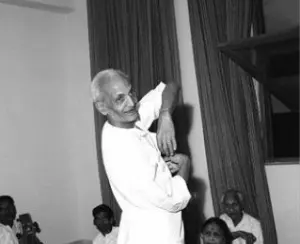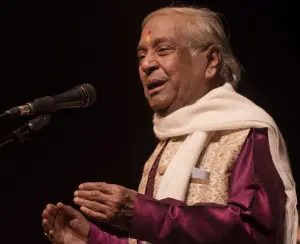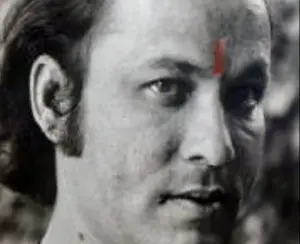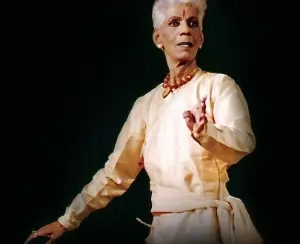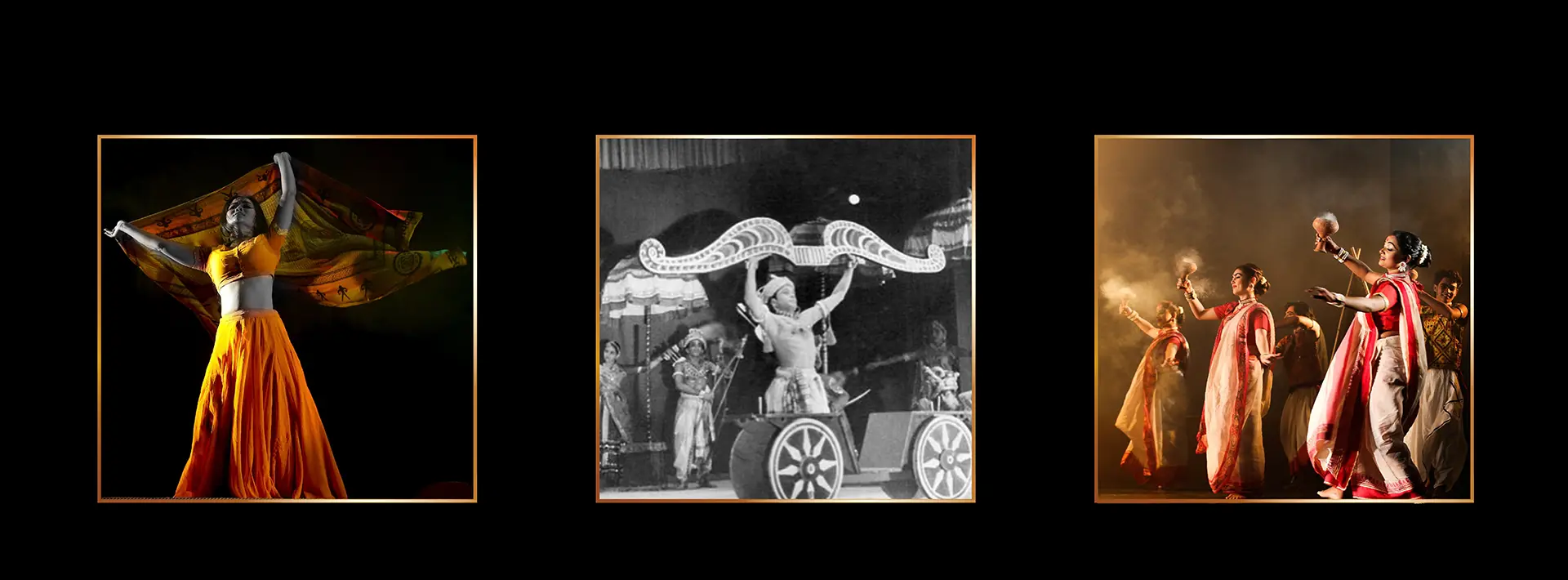
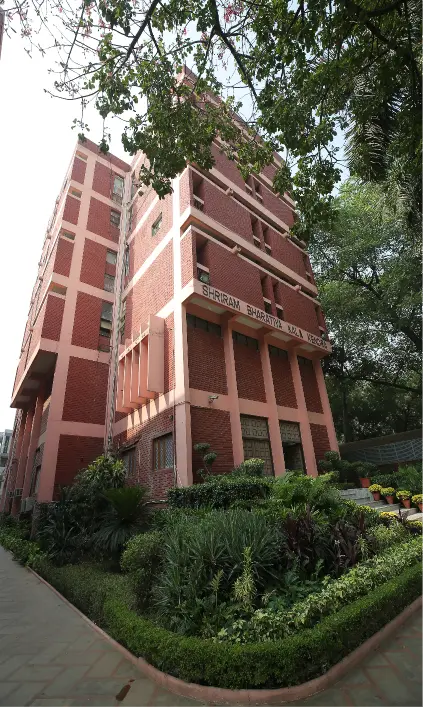
AN ENDURING LEGACY
At the heart of New Delhi, Shriram Bharatiya Kala Kendra stands as the premier institution of national importance, dedicated to preserving and promoting India’s cultural heritage for over seventy years. Today, it is a leader in nurturing talent and celebrating the richness of Indian arts and traditions. By initiating the Folk Festival at the first Republic Day Parade, the Kendra came to symbolize India’s journey toward rediscovering and revitalizing its cultural identity in the post-independence era.
Founded in 1947 during a historic midnight celebration, the Jhankar Music Circle helped reshape India’s cultural landscape. With influential members like the Nawab of Pataudi, Pandit Ravi Shankar, Sumitra Charat Ram, and Shiela Bharat Ram, the Circle played a pivotal role in promoting Indian classical music. Featuring legends like Baba Allaudin Khan, Ustad Hafiz Ali Khan, Pandit Ravi Shankar, Ustad Ali Akbar Khan, Ustad Vilayat Khan, Pandit Pannalal Ghosh, Pandit Samta Prasad, and Vidwan Raja Ali Khan. among others, and others, this inaugural event revived Indian traditional cultural gatherings. Through monthly concerts and annual festivals at New Delhi’s Constitution Club, the Circle fostered a vibrant, intimate space that fuelled India’s cultural renaissance.
Formerly registered as a society in 1952, the Kendra is a vital part of India’s cultural heritage and is credited to the efforts of dedicated leaders and talented artists. Through performances, festivals, and archival projects, it continues to preserve and promote Indian classical arts
Founded by Sumitra Charat Ram, the Kendra is a central custodian of India’s intangible heritage. Her education at Banaras Hindu University under Pandit Madan Mohan Malviya, along with formative experiences such as Ustad Bismillah Khan’s Shehnai performances and her father’s Ramayana recitations, deeply shaped her cultural vision. Influenced by literary figures like Jaishankar Prasad, Subhadra Kumari Chauhan, and Ramdhari Singh Dinkar amongst other . Later through her marriage into the DCM Shriram family expanded her exposure to national figures, she developed a lifelong commitment to the arts. Her belief in the value of India’s artistic traditions led to the establishment of this institution.
Under Smt. Shobha Deepak Singh’s leadership since the 1970s, Shriram Bharatiya Kala Kendra evolved into a dynamic cultural institution. She introduced contemporary themes alongside traditional narratives, expanding its audience and impact. Collaborating with her husband Deepak Singh, she exemplified how a shared vision can drive cultural excellence. Trained under theatre legend Ebrahim Alkazi, Shobha brought innovation in direction and administration. Her documentation of the Kendra’s journey through photography created a rich archive, earning praise from eminent artists. She played a key role in reviving Indian folk forms like Mayurbhanj Chhau and advancing classical arts education. Shobha demonstrated remarkable commitment to cultural education and outreach.For this she was recognized and was awarded with the Padma Shri in 1996,
Kendra’s contributions extend across the spectrum of Indian art forms, including Kathak, Odissi, Bharatanatyam, Mayurbhanj Chhau, and Indian classical vocal and instrumental Music. Its faculty of Gurus and Teachers offers a prospectus that spans the vastness of India’s artistic disciplines. Its programs, including both training and public performances, have played a central role in preserving these traditional art forms while adapting them for contemporary audiences. This commitment to nurturing future generations of artists ensures the continued energy of India’s cultural traditions.
Flagship productions such as “Shri Ram” and “Shri Krishna” highlight Kendra’s dedication to bringing ancient epics and stories into the contemporary cultural conversation. These productions, along with the institution’s array of dance dramas, emphasize its role as a catalyst for artistic innovation. Kendra’s ability to weave together narrative, music, and dance in these productions speaks for its central place in the cultural life of India.
Shriram Bharatiya Kala Kendra stands as a living archive of India’s cultural evolution—nurturing artists, blending tradition with innovation, and upholding its founders’ vision. From post-independence revival to modern-day cultural guardian, the Kendra continues to enrich and sustain India’s artistic heritage for future generations.
The Kendra’s activities are carried out from a campus located in the heart of Mandi House, New Delhi, which accommodates a teaching Block, a Hostel for Staff and Students, a Canteen, an Open-Air Amphitheatre and the Iconic Theatre Hall, the Kamani Auditorium.

Mission & Vision
Shriram Bharatiya Kala Kendra aims to preserve and promote India’s cultural heritage, inspiring future generations by nurturing talent and celebrating the nation’s rich artistic traditions.
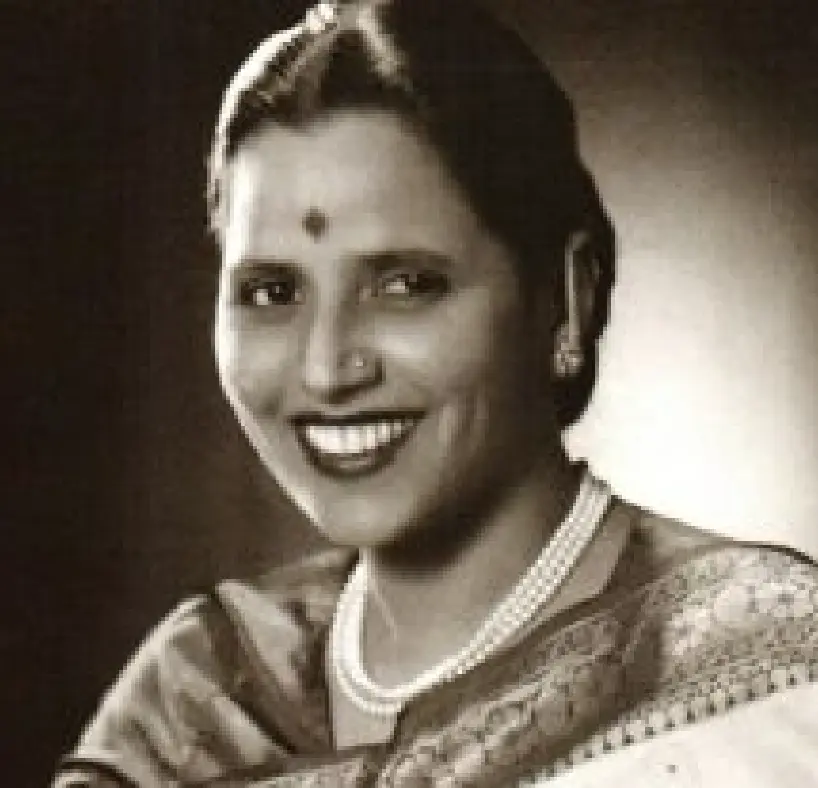
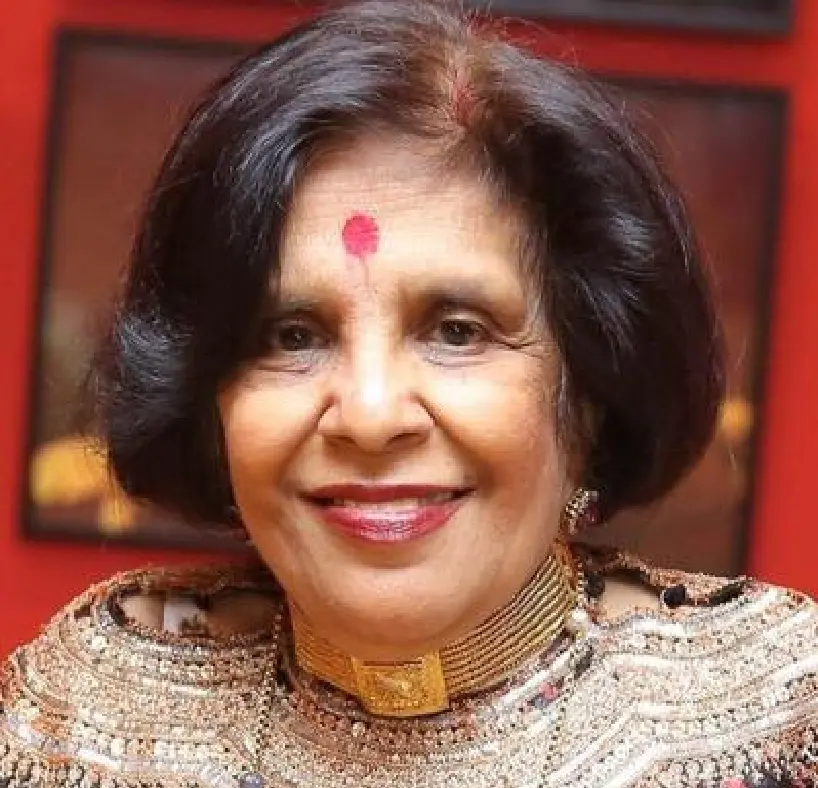
Sumitra Charat Ram
Founder
Sumitraji, as she is fondly called, was born on 17th November 1914 into an illustrious family of landowners of Western UP, then known as the United Province. Her father, Raja Jwala Prasad, was a gifted individual who rose to become the first Indian Chief Engineer of UP. After early schooling in Nainital and Allahabad, Sumitraji went on to join the Banaras Hindu University under the tutelage of the best in Music and Literature, such as Rabindranath Tagore, Madan Mohan Malaviya, Jaishankar Prasad, Mahadevi Verma, Ramdhari Singh Dinkar etc.
Shobha Deepak Singh
Chairperson
Shobha Deepak Singh is a photographer, writer, classical dancer, and the Chairperson of Shriram Bharatiya Kala Kendra. She is known for her contributions to the revival of Mayurbhanj Chhau, a tribal martial dance form from Odisha. The Government of India awarded her the fourth-highest civilian award of the Padma Shri in 1999, for her contributions to Indian Arts and Culture. Shobhaji was born on 21st October 1943 to Lala Charat Ram of DCM and Smt. Sumitra Charat Ram, the renowned arts doyenne and Padma Shri recipient.
Revival
SBKK continues to be a cultural beacon that revives Indian classical art forms and celebrates them through the wonderful mediums of Music and Dance with audiences across the globe, especially the youth.
Kathak Dance Form
Through the Kendra’s College of Indian Classical Music & Dance, SBKK has played a notable role in the revival of the Kathak dance style. In fact, the national institute for teaching Kathak – Kathak Kendra – was originally a department of SBKK until 1964. Thereafter, as a service to her country, our Founder, Smt. Sumitra Charat Ram, donated this unit to the Government of India.
